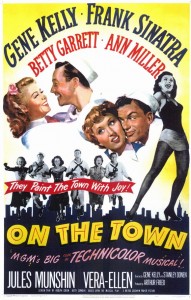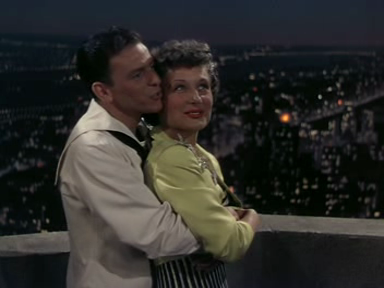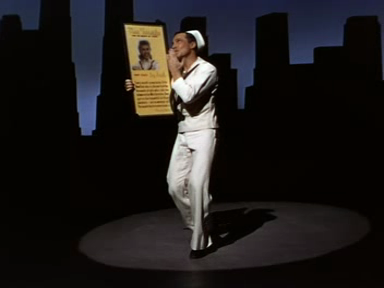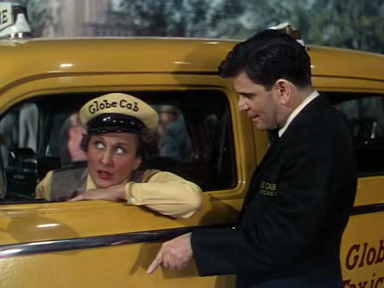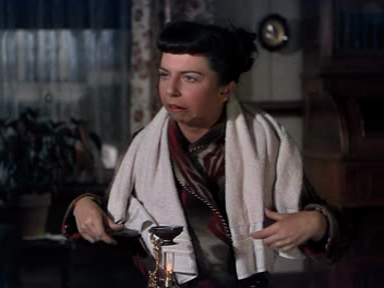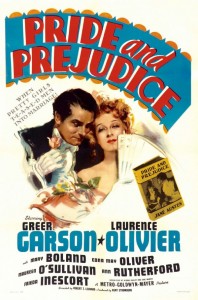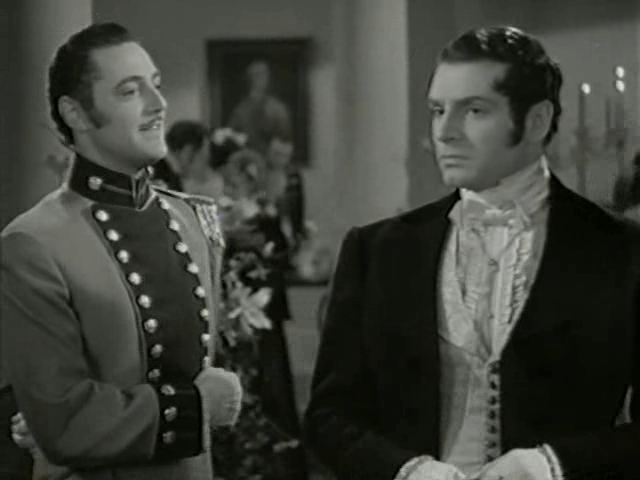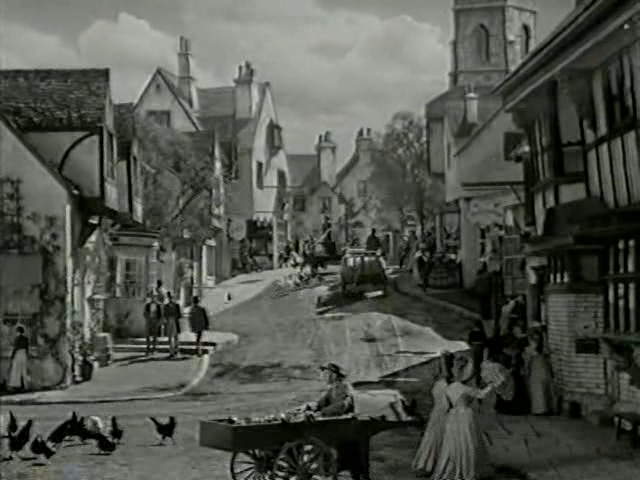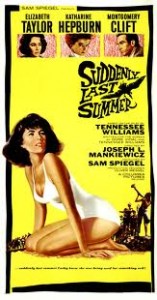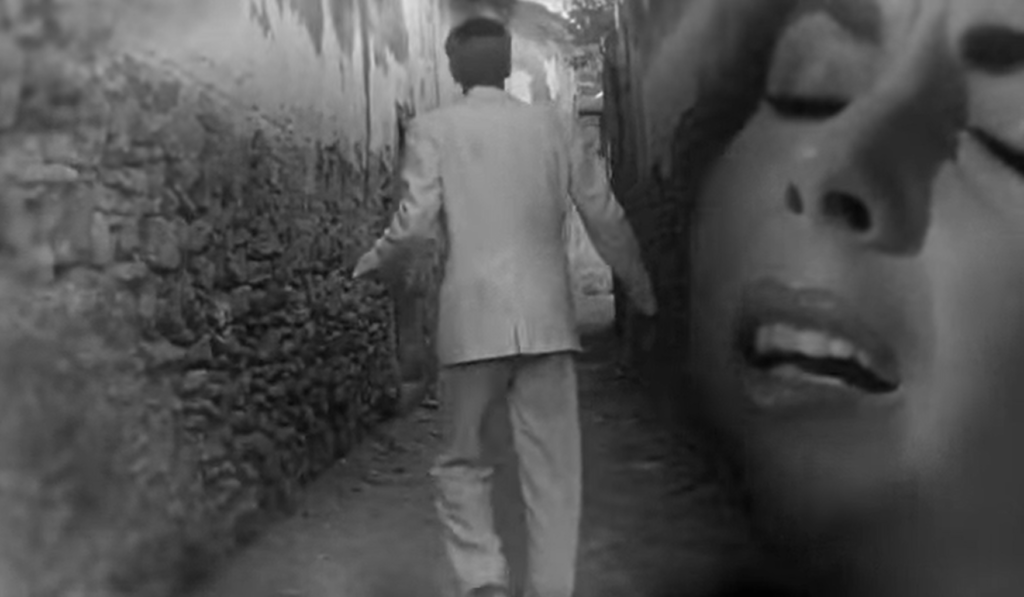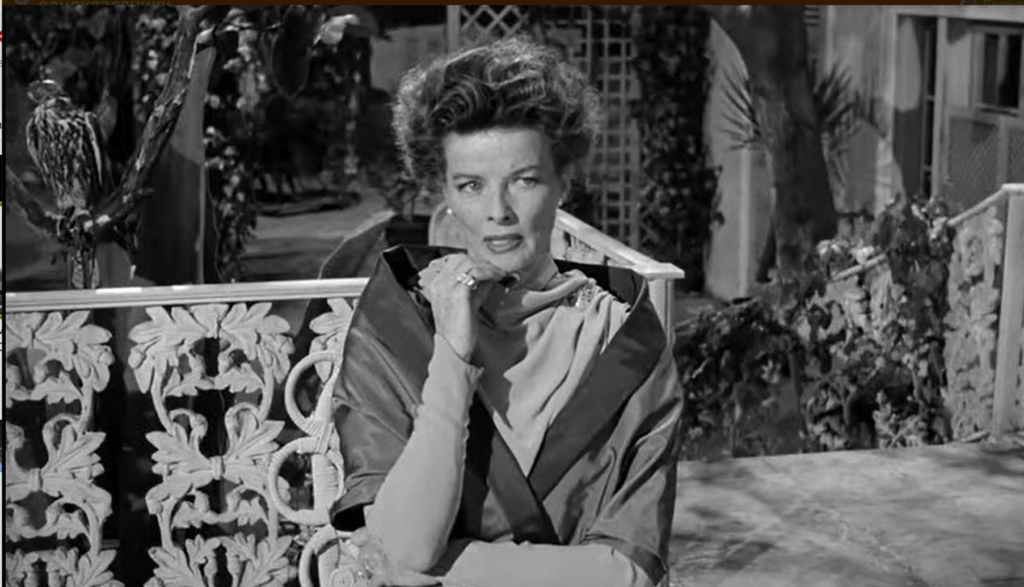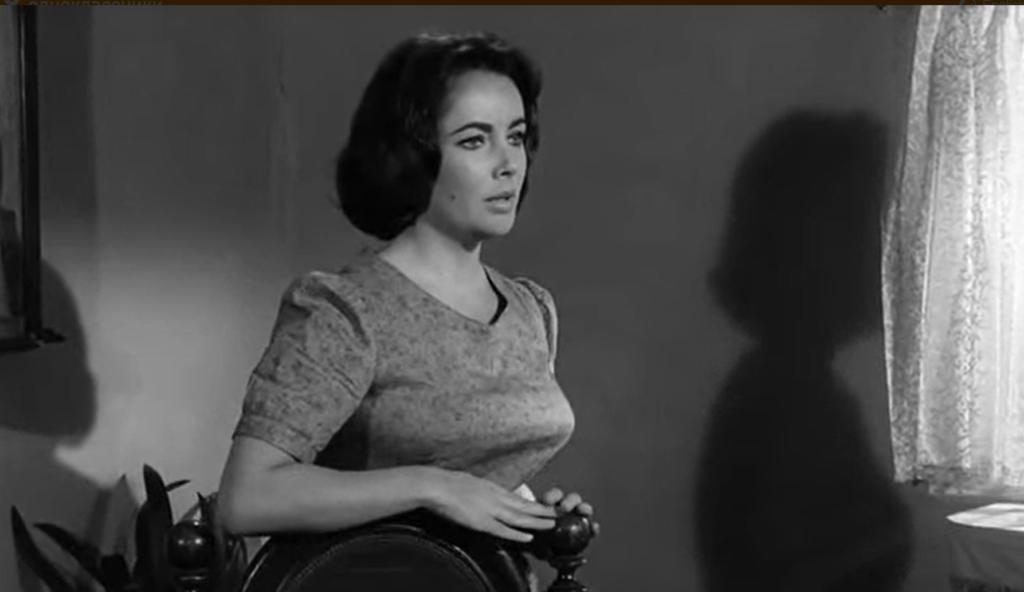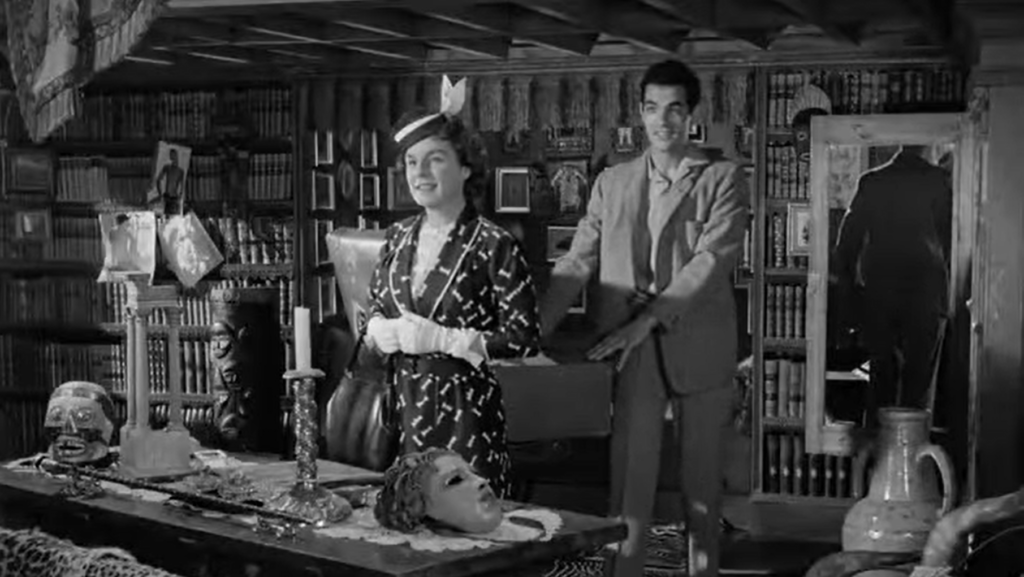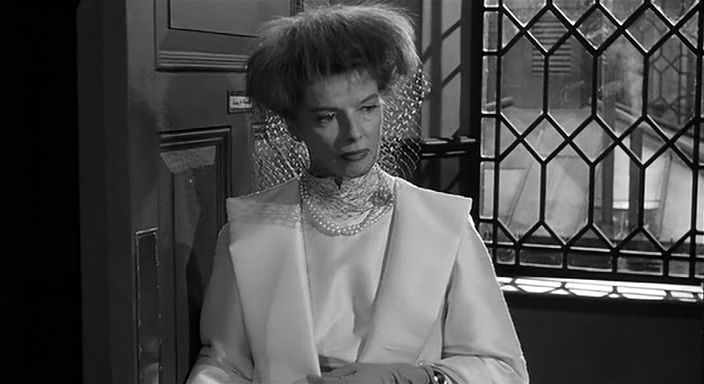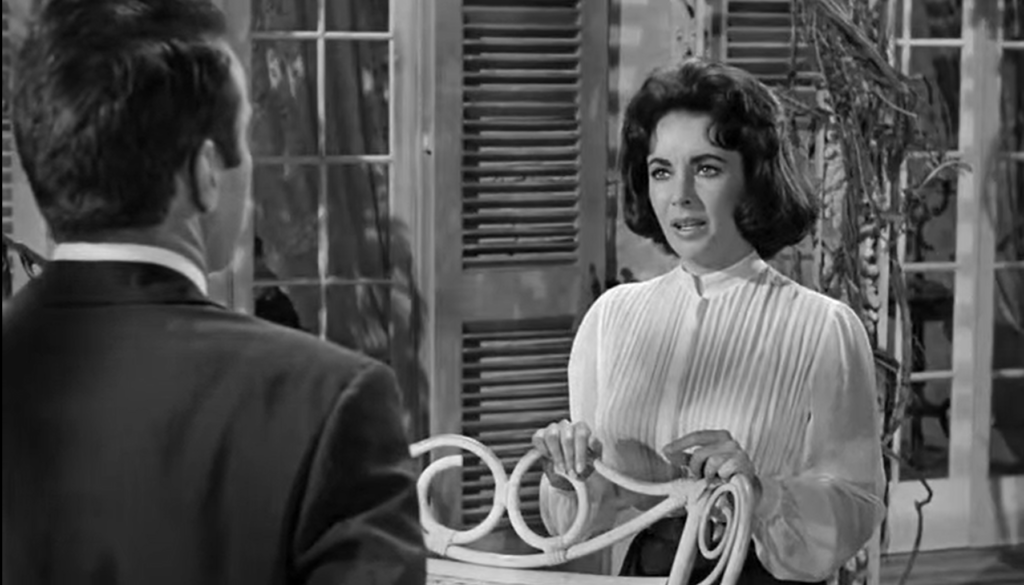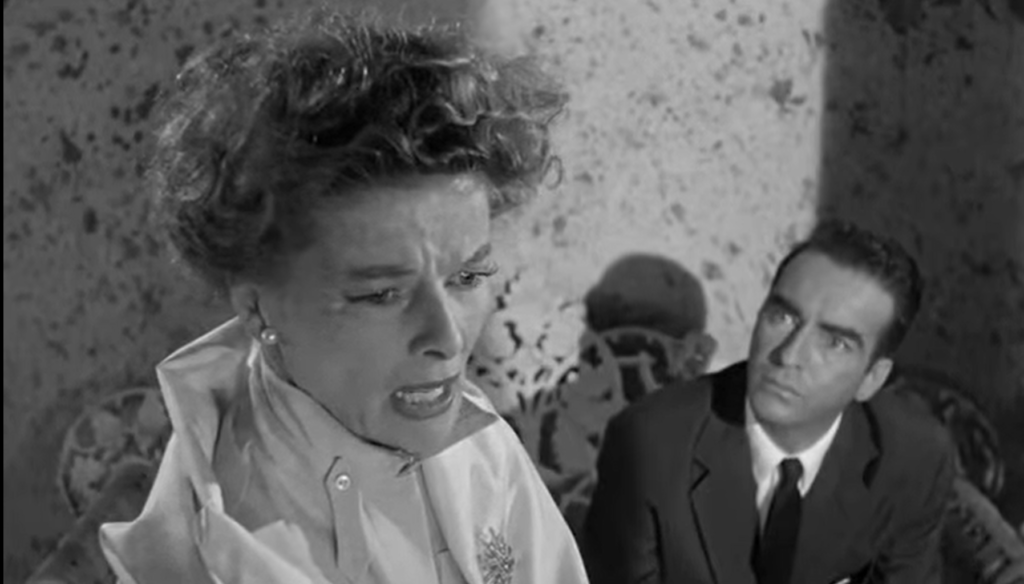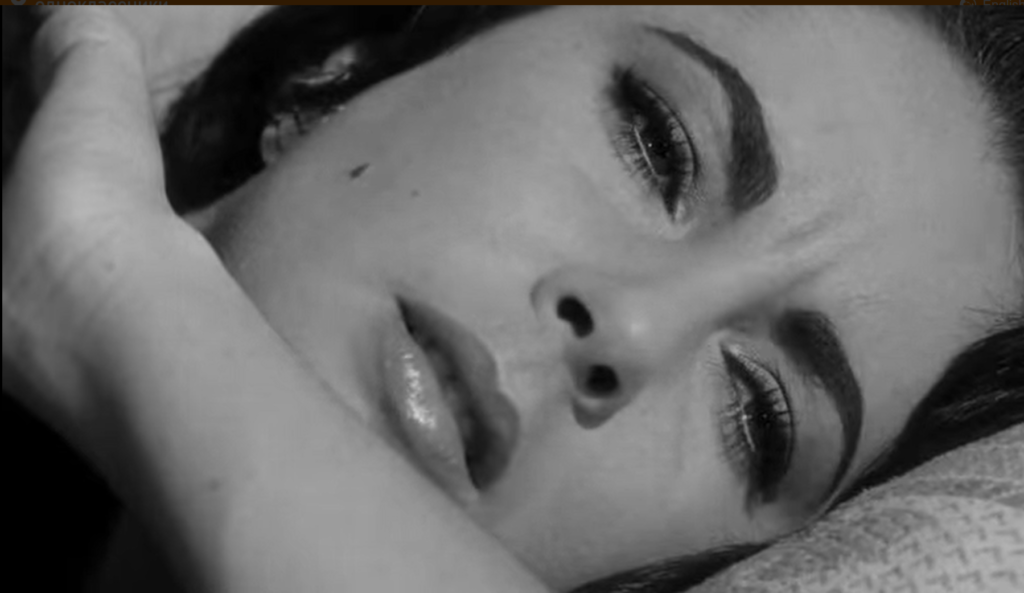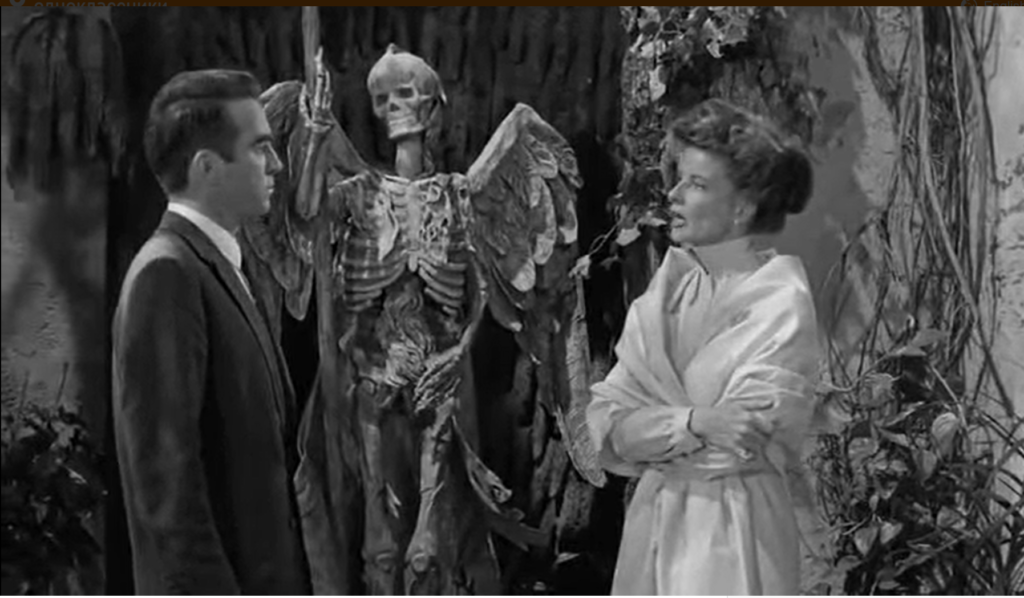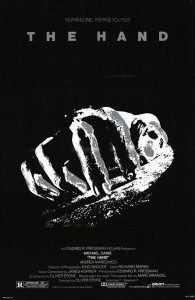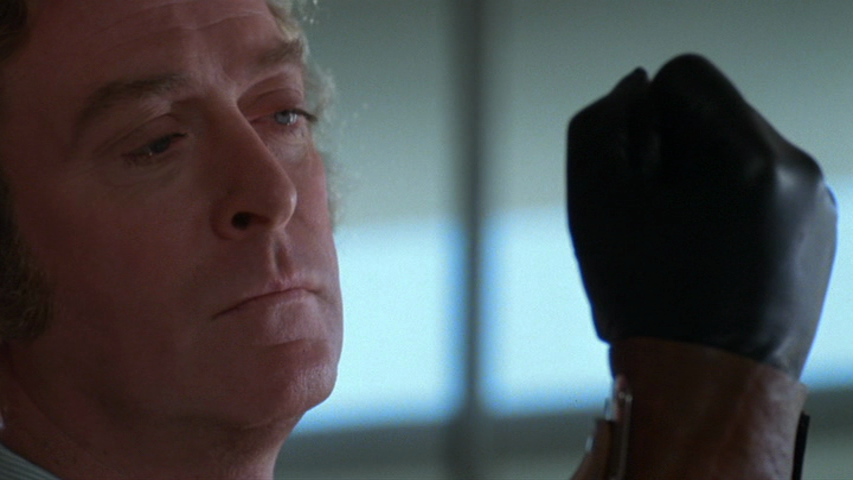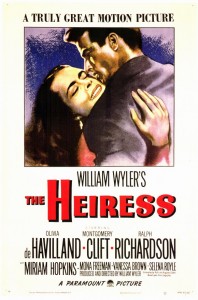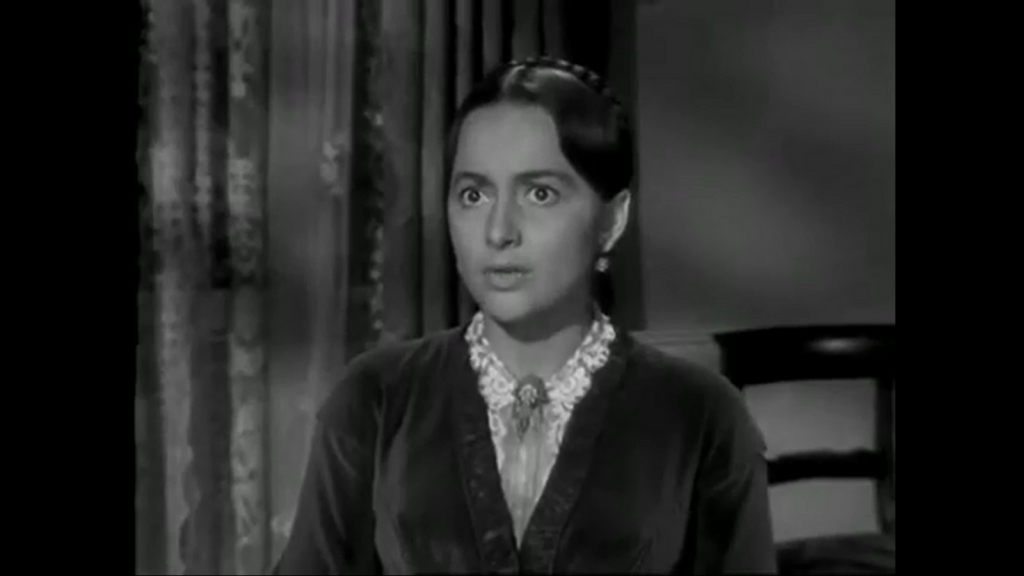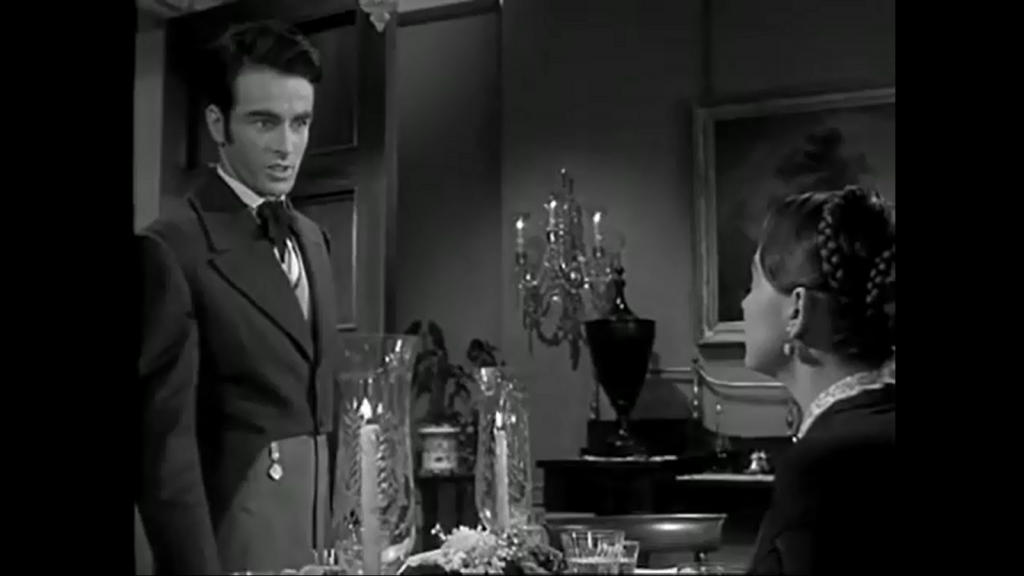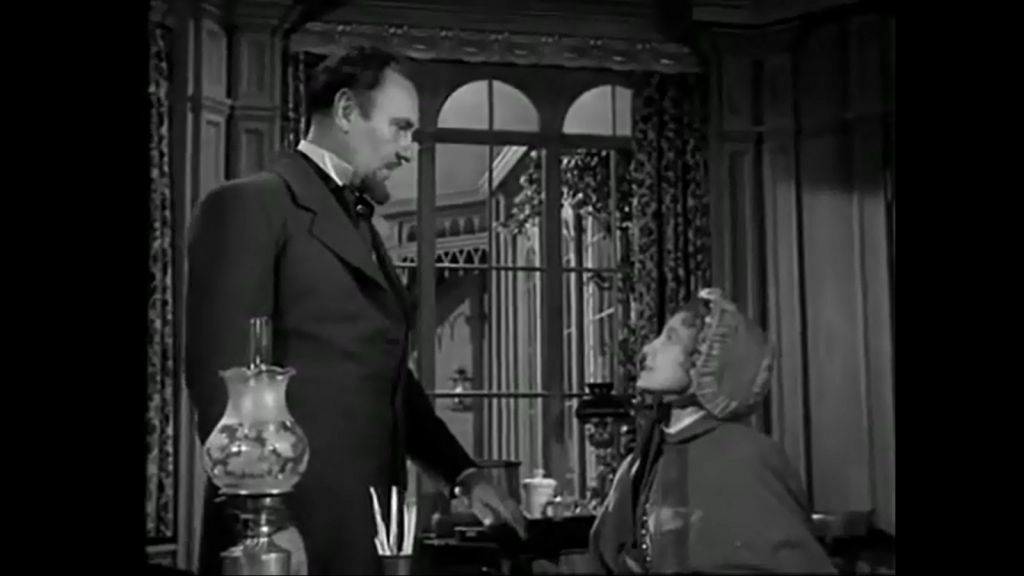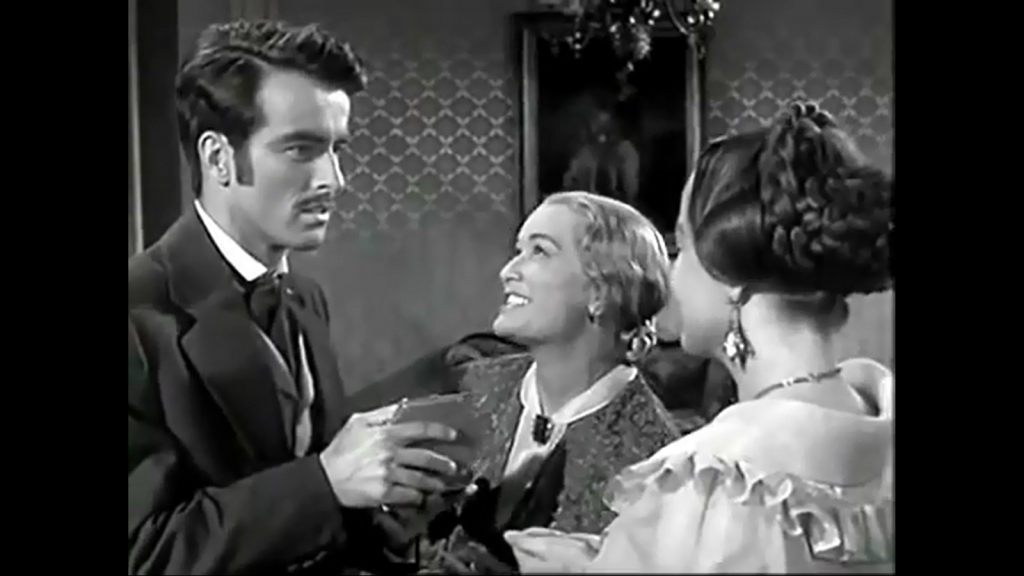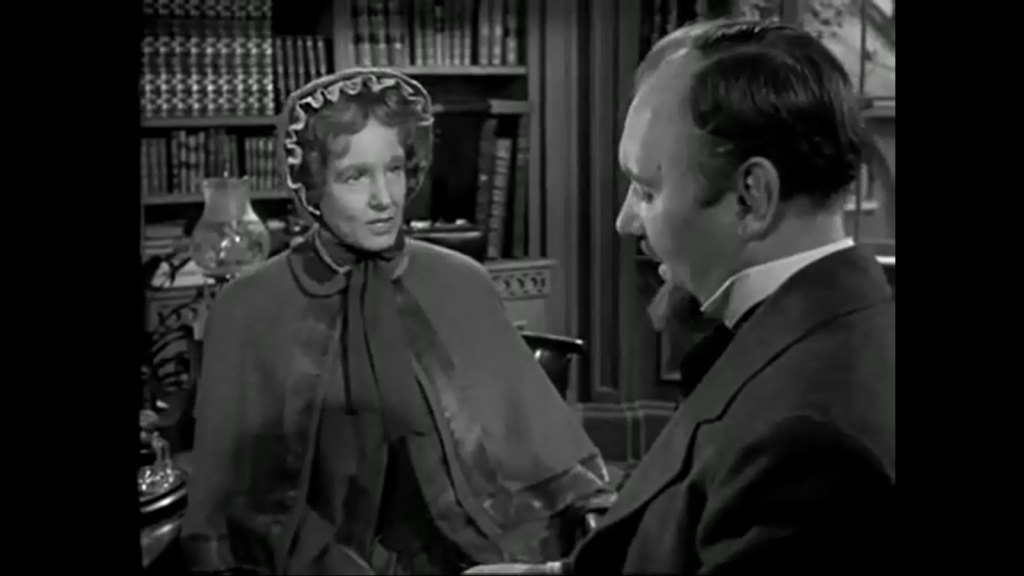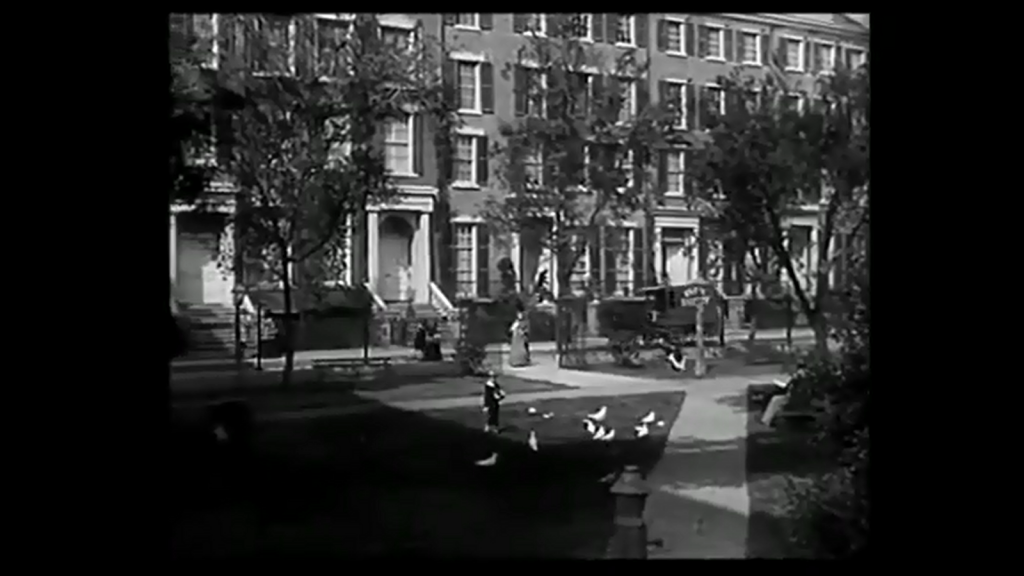|
Genres, Themes, Actors, and Directors:
- Africa
- At Sea
- Character Arc
- Humphrey Bogart Films
- John Huston
- Katharine Hepburn Films
- Missionaries and Revivalists
- Romance
- World War I
Response to Peary’s Review:
Peary writes that “[director John] Huston and his stars injected humor and playfulness” into this “sure-fire ‘feel-good’ movie”, which remains “perhaps the cinema’s greatest romantic adventure… set in the 20th century”. Adapted from C.S. Forester’s novel, it relates the tale of a mismatched pair of middle-aged individuals who “at first… can’t stand each other” but are drawn together during their “perilous journey”, and “become one of the cinema’s truly wonderful romantic couples”. Although the entire scenario defies belief on nearly every count (with the ending in particular most inconceivable), it’s impossible not to be swayed by the magic of Hepburn and Bogart’s unlikely romance, as neither individual is “reticent about expressing love for the other, even when in the midst of tragedy”. As Peary writes, “their endearing gestures have a cheering effect on the viewer”, and “fifty-three-year old Bogart and 45-year-old Hepburn get sexier by the minute”.
Peary’s rather short review of this enduring classic fails to mention much about its fabled production history (recounted by Hepburn in her creatively titled memoir The Making of the African Queen: Or, How I Went to Africa with Bogart, Bacall and Huston and Almost Lost My Mind). As noted in TCM’s “Behind the Camera” overview, while Hepburn and Huston adored shooting on-location in Africa, Bogart was miserable and couldn’t wait to return back home to “civilization”; fortunately, his wife (Lauren Bacall) was on hand to help make things more tolerable for everyone. Throughout filming — while Huston was tangentially obsessed with hunting an elephant — the cast and crew were bedeviled by all kinds of challenges (torrential rains, wild animals, contaminated water, and much more), thus adding to the authenticity of the final product.
Indeed, it’s remarkably refreshing to see how truly filthy both Bogart and Hepburn get during their onscreen adventures — and it’s equally satisfying to witness how “there is a division of labor” throughout, with Hepburn’s seemingly prim and proper spinster immediately proving herself to be unexpectedly savvy, brave, and thrill-seeking, thereby slowly seducing Bogart’s crusty captain. Though you’d never know it from watching her pumping organ pedals in the film’s opening sequence (a wonderfully droll snapshot of her life as a missionary), Hepburn’s Rose Sayer turns out to be one of cinema’s strongest female protagonists; her character arc is truly a joy to behold. My favorite scene is probably the one in which the couple team together to fix The African Queen, utilizing the “primitive” tools and materials they have at hand (suggested by Hepburn herself), and doing the bulk of their work underwater.
Bogart won an Academy Award for his humorous performance as Charlie Allnut (a great last name!), though as Peary notes, “for some reason the equally fine Hepburn (who based her character [in part] on Eleanor Roosevelt) didn’t even get nominated”; both actors — who literally carry the entire movie — are at the peak of their game. The location shooting (with cinematography by Jack Cardiff) is equally noteworthy — and again, reading about the film’s production history gives one added appreciation for what it took to achieve such authenticity. With that said, I’ll admit to finding the obvious use of rear-screen projection at times to be somewhat distracting; however, one must simply accept this as an artifact of the times.
Finally, the screenplay — co-written by James Agee and Huston, with assistance from Peter Viertel and John Collier — is consistently suspenseful, never dumbing down the material, and allowing for plenty of humorous interplay between the leads. As noted in Bosley Crowther’s review for the New York Times (where he refers to it as “a well-disguised spoof”), the tale “is so personally preposterous and socially bizarre that it would take a lot of doing to be made convincing in the cold, clear light of day” — and “so Mr. Huston merits credit for putting this fantastic tale on a level of sly, polite kidding and generally keeping it there, while going about the happy business of engineering excitement and visual thrills.” Well put, Mr. Crowther.
Redeeming Qualities and Moments:
- Humphrey Bogart as Charlie Allnut (nominated by Peary as one of the Best Actors of the Year)
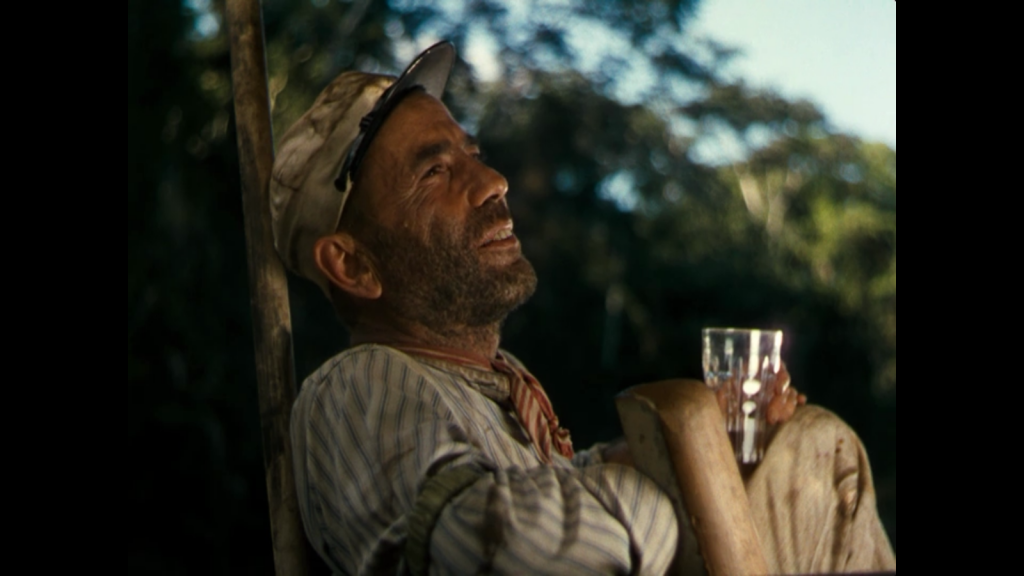
- Katharine Hepburn as Rose Sayer (nominated by Peary as one of the Best Actresses of the Year)
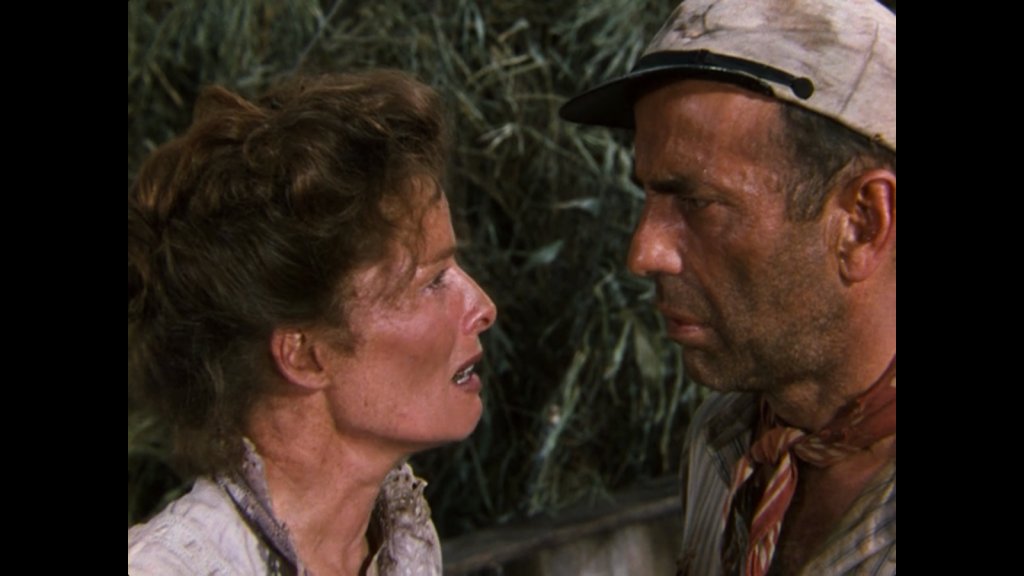
- Jack Cardiff’s cinematography
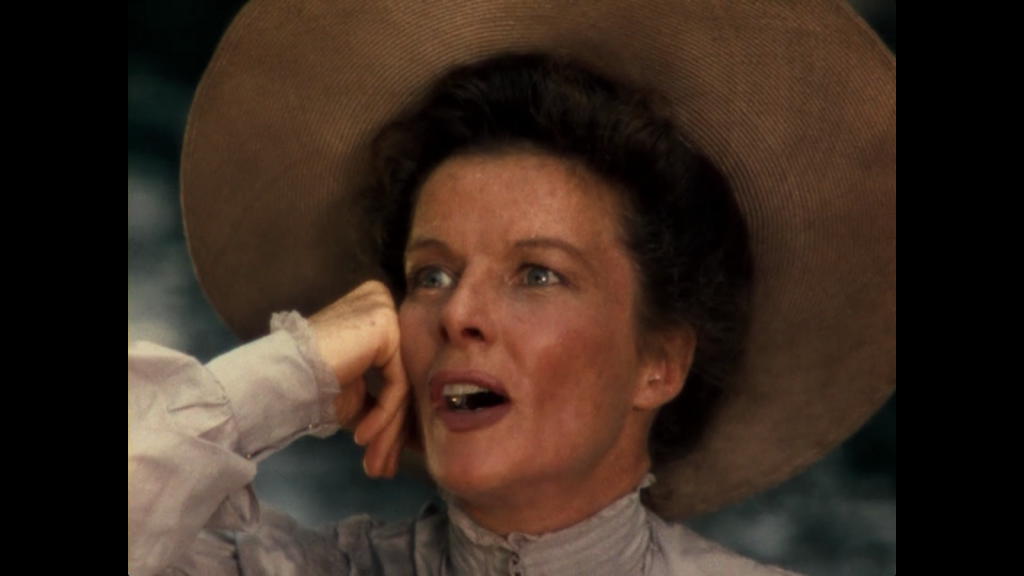
- Fine location shooting in the Belgian Congo

- James Agee and John Huston’s script
Must See?
Yes, as a most enjoyable romantic-adventure.
Categories
- Genuine Classic
- Oscar Winner or Nominee
(Listed in 1001 Movies You Must See Before You Die)
Links:
|
